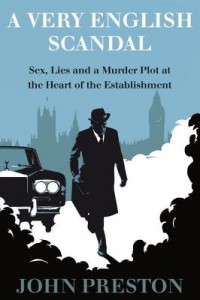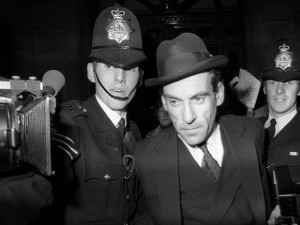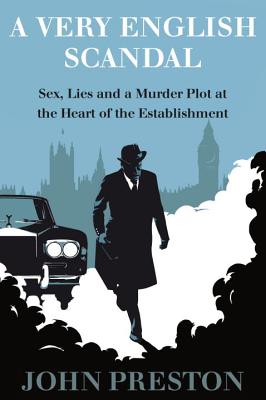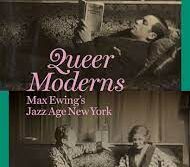 A Very English Scandal: Sex, Lies and a Murder Plot
A Very English Scandal: Sex, Lies and a Murder Plot
at the Heart of the Establishment
by John Preston
Other Books. 340 pages, $27.95
IN 1979, Jeremy Thorpe, a former MP of the British House of Commons and leader of the once powerful Liberal Party in the UK, stood trial for criminal conspiracy and attempted murder. Described by the tabloids as the trial of the century, the case combined two compelling scandals: political ambition and secret homosexual liaisons. While Thorpe, along with three co-conspirators, was ultimately acquitted of attempted murder of Thorpe’s former lover, Norman Scott, the outcome of the trial is really beside the point. As British writer and journalist John Preston shows in this detailed account of Thorpe’s rise and fall in Westminster, stories of political scandal, like murder mysteries, rest on the personalities and private motivations that lie behind the public revelations.
While there is little new to add to the historical record, we do get a rich cast of characters who are rendered with the precision of a journalist and the narrative skill of a novelist. We encounter Peter Bessell, a Liberal Party MP and unsuccessful businessman who became a constant loyalist to Thorpe, only to be betrayed in the end. There’s the ex-lover Norman Scott, who began life as Norman Jossife in a conservative Catholic family in Kent, reinventing himself many times over from destitute stable hand, to fashion model, to horse trainer. There’s the Bahamian-based millionaire Jack Hayward, who became an early supporter of the charismatic Thorpe and for years funded the Liberal Party, and ultimately and unknowingly provided funds to pay for Norman’s assassin. In a small but crucial role is Andrew Newton, a pilot and hapless assassin who was recruited to kill Norman but ended up killing Norman’s Great Dane Rinka on a village road in West Somerset, England. And not to be overlooked, Thorpe’s two accommodating wives: the wealthy Caroline Allpass, who died in a car accident two years after the wedding; and Marion Stein, who became a staunch supporter of her husband’s innocence until her death in 2014. In the middle of this constellation is of course Thorpe himself. Educated at Eton and Oxford, Thorpe rejected his family’s conservative leanings to become one of the youngest MPs in the Liberal Party. “As well as being ebullient and good looking,” writes Preston, “Thorpe had apparently bottomless reserves of charm.” These attributes were amplified by his genuine concerns for the everyday lives of his constituents and his strong support for human rights. Thorpe was a vocal critic of South Africa’s apartheid policy at a time when most MPs either ignored the issue or tacitly supported it. It was at a friend’s house in the Cotswolds, in 1960, that a 31-year-old Thorpe first met twenty-year-old Scott, who was working as a stable hand. Scott “grew up with a very fragile sense of his own identity,” writes Preston. “Starved of affection at home, he found it in the company of animals.” Months after their first meeting, Scott fled the farm and headed to London and to Thorpe, taking with him a stash of homoerotic letters between Thorpe and his friend—letters that would become central to the political and sexual scandal in years to come. Preston tells the story like a good old-fashioned mystery, with chapter titles such as “The Postcard,” “Unexpected Developments,” and “A Simple Plan.” Preston presents Thorpe as unfeeling and disconnected from his sexual desires, a classic case of a closeted man whose public persona and private realties were constantly at odds. For example, Preston renders the first sexual encounter between Thorpe and Scott—which occurred in Thorpe’s mother’s house, of all places—as one of passionless awkwardness verging on rape. Scott, we are told, bit the pillow to avoid crying. “After what seemed like an age,” writes Preston, “Thorpe withdrew and wiped himself clean,” patted Scott on the thigh, and left. Eventually Thorpe turned Scott into a kept man, setting him up in a modest London apartment, but well beyond his family and political life. But in 1967, when Thorpe took the leadership of the Liberal Party, his public persona and personal realities were put under closer scrutiny. In a move to avoid rumors that may have been floating around Westminster, Thorpe, to the surprise of those close to him, married Caroline Allpass, a charming and beautiful daughter of a wealthy family who looked good at rallies and had little awareness of Thorpe’s homosexuality. The same year that he took the leadership position, Parliament decriminalized homosexual relations between consenting adult men over 21—a bill that Thorpe heartily supported. One of the more compelling and ironic dramas in the book comes during the effort to change the law. The conservative Lord Arran was the leading advocate for the bill in the House of Lords, much to the dismay of many of his peers. He was also a fierce defender and protector of the English badger but hadn’t been able to get a bill approved to protect the animal. When Lord Arran was asked why a bill to decriminalize homosexuality had passed while a bill to protect the badger had not, he replied: “There are not many badgers in the House of Lords.” As Thorpe’s political career rose, Scott’s world ebbed and flowed. He was no longer supported by Thorpe on a regular basis. He tried his hand at modeling for a while but returned to caring for horses and learning dressage. More importantly, Scott was not shy about announcing that he had a sexual relationship with the leader of the Liberal Party, even as he married and struggled to find work. In other words, Scott became a growing liability to the larger political ambitions of Thorpe. Through Bessell, Thorpe tried to set Scott up with a job well beyond the U.K., either in the U.S. or Malaysia. As Preston shows, the increasing fear that Scott would become a national scandal for the Liberal Party produced in Thorpe a simmering paranoia, which ultimately led to Thorpe telling Bessell, in a chamber in Westminster, “we’ve got to get rid of him,” adding: “It’s no worse than shooting a sick dog.” It’s here that the charming, however emotionally distant, Thorpe emerges as a heartless political operative whose ambitions and social privilege navigate a narrow path between sociopath and sympathetic victim of a homophobic culture. It’s hard to feel sorry for a man so obsessed with his public image that he would want to kill off an ex-lover. Preston shows how Thorpe’s secrets and increasingly desperate actions damaged everyone who got near him. It would take another decade before Thorpe’s secrets would emerge in tabloid headlines after the failed plan to kill Scott became a national scandal, forcing Thorpe to resign as party leader. Preston details these years with page-turning suspense. What strikes you is how much effort Thorpe and his surrogates, specifically Bessell, did to erase Thorpe’s relationship with Scott—both in emotional and financial costs. And as Preston makes clear, Scott too suffered the injuries of this system of homosexual secrets and political power. At times, the book seems over-written, with scenes drawn out for dramatic effect, particularly in the early chapters. But soon enough the narrative picks up, pulling us toward the botched assassination on a desolate country road and the sensational trial that followed. Thorpe’s political and personal life never recovered, as the air of suspicion hovered over him until his death in 2014. Yes, he was acquitted, but throughout the trial he remained silent, never speaking in his own defense. Instead, he stood by his previous claims that while he had “homosexual tendencies,” he never had sex with Scott or any motive to kill him. After the verdict, the Evening Standard noted: “Inevitably, rumour, speculation and controversy will surround ‘The Scott Affair’ for generations to come.” But this was not only the demise of Thorpe; it was also the end of the once vital Liberal Party—a historical fact that unfortunately doesn’t get much attention in Preston’s story. Thorpe resigned as party leader in 1976. After his trial, any hope that the Party could overtake the ruling Labor Party in national elections faded. Instead, in May of 1979, just as opening arguments began in Thorpe’s trial, the Conservatives won a big victory in the national elections. Margaret Thatcher would rule as prime minister for the next eleven years. The Liberal Party would fold up its tent in 1988. James Polchin teaches writing at New York University.





